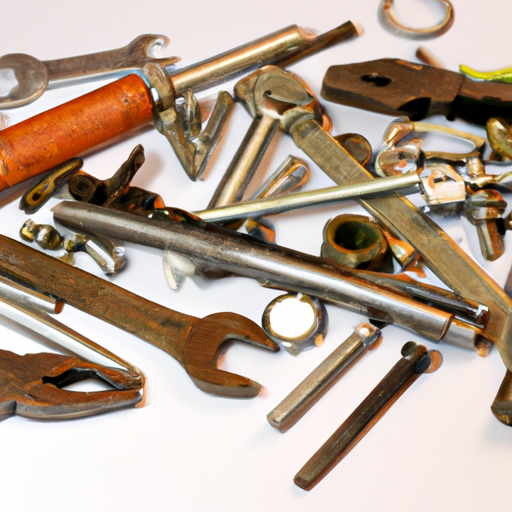
The dedicated tool industry is a vital sector that plays a crucial role in various industries such as construction, manufacturing, automotive, and many others. These tools are specifically designed for a particular task or job, making them essential for professionals and DIY enthusiasts alike. From power tools to hand tools, the dedicated tool industry offers a wide range of products to meet the diverse needs of its customers.

One of the key trends shaping the dedicated tool industry is the increasing focus on efficiency and productivity. As businesses and individuals seek to maximize their output and minimize downtime, there is a growing demand for tools that are not only reliable and durable but also efficient and easy to use. Manufacturers in the industry are responding to this demand by developing tools that are more ergonomic, lightweight, and user-friendly, allowing professionals to work faster and more effectively.
Another trend driving the growth of the dedicated tool industry is the emphasis on safety and sustainability. With an increasing awareness of the environmental impact of manufacturing processes and the importance of workplace safety, manufacturers are incorporating eco-friendly materials and technologies into their products. From energy-efficient power tools to recyclable packaging, the industry is making strides towards a more sustainable future.
The rise of digitalization and automation is also reshaping the dedicated tool industry, with the integration of smart technologies and connectivity into tools and equipment. From Bluetooth-enabled power tools to mobile apps that provide real-time data and analytics, manufacturers are leveraging technology to enhance the performance and functionality of their products. This trend is not only improving the user experience but also enabling professionals to work more efficiently and effectively.
Despite the positive trends and growth in the dedicated tool industry, there are also challenges that manufacturers and businesses in the sector must navigate. One of the key challenges facing the industry is the increasing competition from both traditional players and new entrants. With the market becoming more crowded and competitive, manufacturers must differentiate themselves through innovation, quality, and customer service to stay ahead of the curve.
Another challenge for the dedicated tool industry is the impact of global economic uncertainties and geopolitical tensions. Fluctuations in raw material prices, trade tariffs, and supply chain disruptions can have a significant impact on the industry, affecting production costs, pricing, and profitability. Manufacturers must be agile and adaptable to navigate these challenges and ensure the sustainability of their businesses.
In conclusion, the dedicated tool industry is a dynamic and evolving sector that plays a vital role in supporting various industries and professionals. With the rise of technological advancements, changing consumer preferences, and increasing demand for specialized tools, the industry is poised for continued growth and development. By embracing innovation, sustainability, and digitalization, manufacturers in the dedicated tool industry can stay competitive and meet the evolving needs of their customers.
The dedicated tool industry is a vital sector that plays a crucial role in various industries such as construction, manufacturing, automotive, and many others. These tools are specifically designed for a particular task or job, making them essential for professionals and DIY enthusiasts alike. From power tools to hand tools, the dedicated tool industry offers a wide range of products to meet the diverse needs of its customers.

One of the key trends shaping the dedicated tool industry is the increasing focus on efficiency and productivity. As businesses and individuals seek to maximize their output and minimize downtime, there is a growing demand for tools that are not only reliable and durable but also efficient and easy to use. Manufacturers in the industry are responding to this demand by developing tools that are more ergonomic, lightweight, and user-friendly, allowing professionals to work faster and more effectively.
Another trend driving the growth of the dedicated tool industry is the emphasis on safety and sustainability. With an increasing awareness of the environmental impact of manufacturing processes and the importance of workplace safety, manufacturers are incorporating eco-friendly materials and technologies into their products. From energy-efficient power tools to recyclable packaging, the industry is making strides towards a more sustainable future.
The rise of digitalization and automation is also reshaping the dedicated tool industry, with the integration of smart technologies and connectivity into tools and equipment. From Bluetooth-enabled power tools to mobile apps that provide real-time data and analytics, manufacturers are leveraging technology to enhance the performance and functionality of their products. This trend is not only improving the user experience but also enabling professionals to work more efficiently and effectively.
Despite the positive trends and growth in the dedicated tool industry, there are also challenges that manufacturers and businesses in the sector must navigate. One of the key challenges facing the industry is the increasing competition from both traditional players and new entrants. With the market becoming more crowded and competitive, manufacturers must differentiate themselves through innovation, quality, and customer service to stay ahead of the curve.
Another challenge for the dedicated tool industry is the impact of global economic uncertainties and geopolitical tensions. Fluctuations in raw material prices, trade tariffs, and supply chain disruptions can have a significant impact on the industry, affecting production costs, pricing, and profitability. Manufacturers must be agile and adaptable to navigate these challenges and ensure the sustainability of their businesses.
In conclusion, the dedicated tool industry is a dynamic and evolving sector that plays a vital role in supporting various industries and professionals. With the rise of technological advancements, changing consumer preferences, and increasing demand for specialized tools, the industry is poised for continued growth and development. By embracing innovation, sustainability, and digitalization, manufacturers in the dedicated tool industry can stay competitive and meet the evolving needs of their customers.